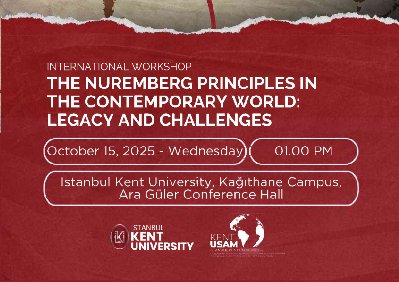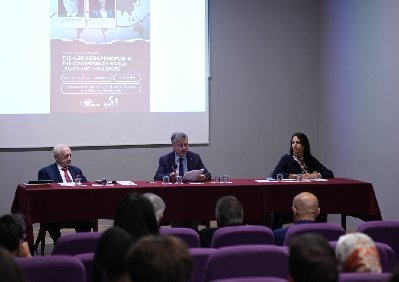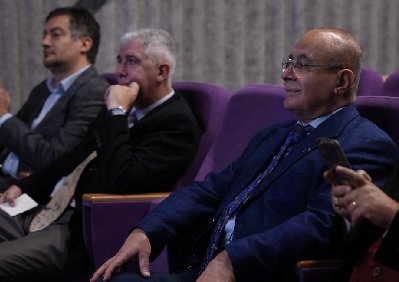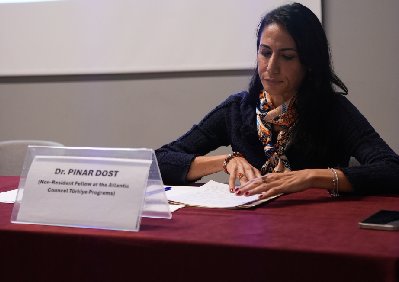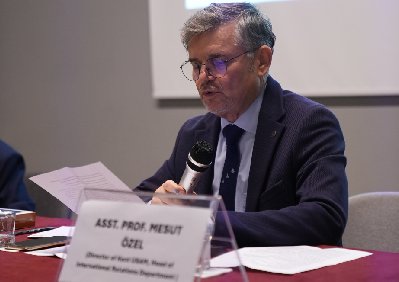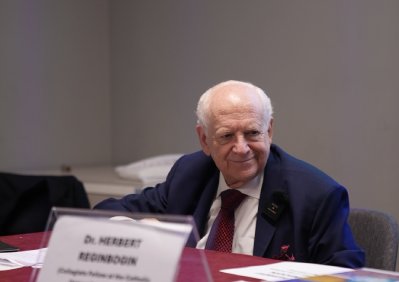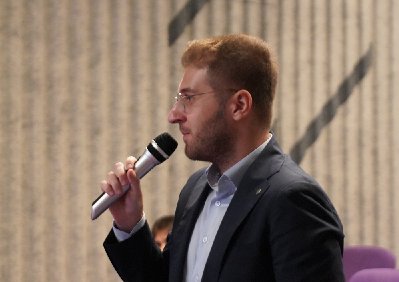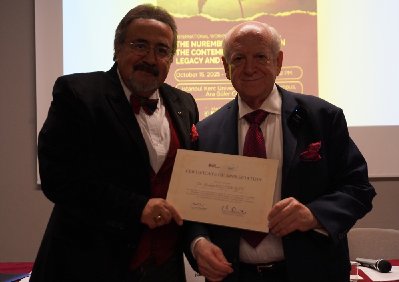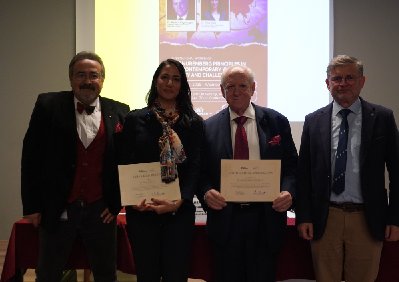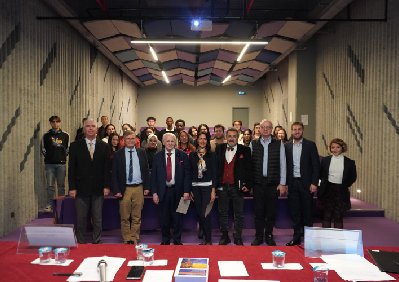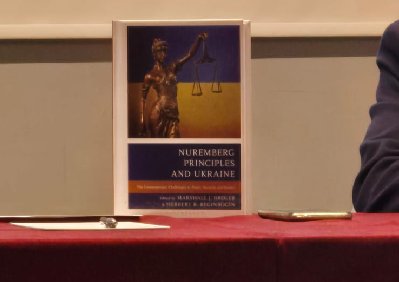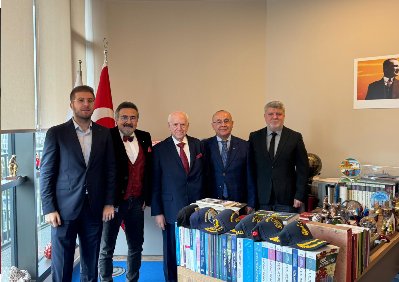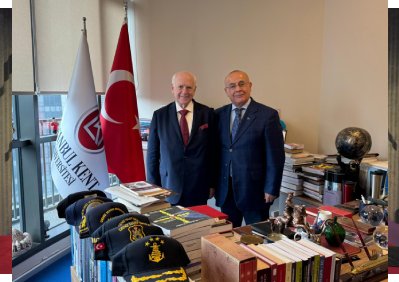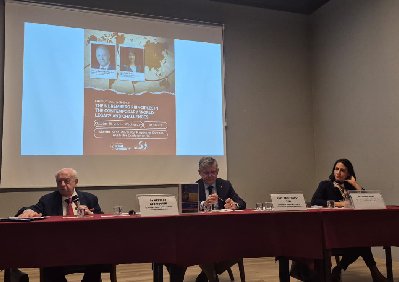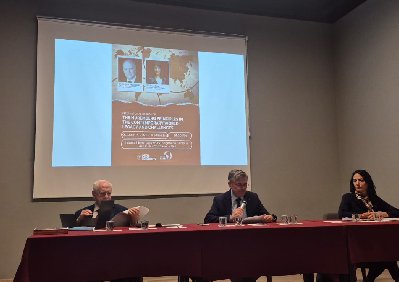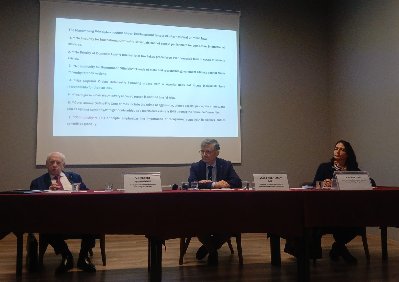International Workshop: “The Nuremberg Principles in the Contemporary World: Legacy and Challenges”
Date : 15.10.2025
Overview
On 15 October 2025, the “International Workshop: The Nuremberg Principles in the Contemporary World: Legacy and Challenges” was organised by Istanbul Kent University's Strategic Research Center (KENTUSAM). The event, which aimed to connect the historical foundations of international criminal law with urgent contemporary global issues, brought together two prominent scholars: Dr. Herbert Reginbogin, Collegiate Fellow at the Catholic University of America's Institute for Policy Research, and Dr. Pınar Dost, a Non-Resident Fellow at the Atlantic Council's Turkey Program. The workshop was moderated by Asst. Prof. Dr. Mesut Özel, the Director of KENTUSAM and Head of the Department of International Relations. The event attracted a diverse audience of students and academics from various disciplines, who engaged in a lively and insightful question-and-answer session following the presentations.
Presentations
Asst. Prof. Dr. Mesut Özel opened the session with a welcoming speech, framing the workshop's purpose against the backdrop of ongoing global conflicts. He underscored that the principles established at the Nuremberg Trials—accountability for aggression, war crimes, and crimes against humanity—were once seen as the bedrock of a new world order. He noted that these very principles are now being tested in real-time, particularly by the war in Ukraine. Dr. Özel highlighted the workshop's intellectual foundation, the recently published volume "Nuremberg Principles and Ukraine: The Contemporary Challenges to Peace, Security and Justice," co-edited by the event's speakers, and declared the workshop open.
The first presentation was delivered by Dr. Herbert Reginbogin, an expert in international law, US foreign policy, and economic statecraft. Dr. Reginbogin began by framing the discussion at the critical intersection of law and politics, where legal principles are often instrumentalized by those in power. He provided a detailed historical account of the Nuremberg Trials, explaining how they moved beyond a purely positivist view of law to embrace natural law principles, establishing that individuals, including heads of state, cannot claim immunity for international crimes. Drawing powerful parallels between Nazi Germany and contemporary crises, he asked poignant questions about the international response to atrocities in Ukraine and Gaza: "Where is humanity? Where is the law?"
Dr. Reginbogin traced the evolution of the Nuremberg legacy into the modern framework of international justice, including the establishment of the UN and the International Criminal Court (ICC). However, he critically noted that major powers like the United States, Russia, China, and Turkey remain outside the ICC's full jurisdiction, exposing a fundamental flaw in the global justice system. He warned against the rise of authoritarianism and the erosion of democratic norms, urging the younger generation to be vigilant and active. He concluded that
the future of the Nuremberg legacy depends not on pessimism, but on practical, courageous steps to defend the rule of law, uphold democratic principles, and hold power accountable.
The second presentation was delivered by Dr. Pınar Dost, a historian of international relations and modern Turkish diplomatic history. Reflecting on her research into genocide and transitional justice, Dr. Dost argued that while international justice is often symbolic, it remains a moral imperative. She stated that prosecuting even a few high-level criminals is necessary to comfort our "guilty consciousness" and affirm that we stood on the right side of history.
Dr. Dost's presentation focused specifically on the crime of aggression, the modern equivalent of the "crimes against peace" prosecuted at Nuremberg. She meticulously outlined the legal framework, including the UN Charter, the Rome Statute, and the Kampala Amendments, to explain why the ICC cannot prosecute Russian leaders for the act of aggression itself against Ukraine, despite having issued arrest warrants for other war crimes. This, she argued, exposes a major gap in international law. Dr. Dost also highlighted the issue of double standards, contrasting the international community's swift support for ICC investigations in Ukraine with the political pressure and objections faced by the Court when it issued arrest warrants for Israeli and Hamas leaders concerning the situation in Gaza. She concluded by advocating for a two-track approach: establishing a special tribunal for aggression against Ukraine in the short term, and pursuing long-term amendments to the Rome Statute to remove jurisdictional barriers, thereby strengthening the ICC's credibility and impartiality.
Questions and Answers
The presentations sparked a dynamic Q&A session, with students and faculty posing probing questions that deepened the discussion. Key themes emerged, including:
- The Nature of Justice: A student questioned the very existence of true international justice in a world where political power often overrides moral principles. In response, Dr. Reginbogin acknowledged the challenges but pointed to tangible examples of accountability, such as the prosecution of Slobodan Milošević, arguing that justice, while imperfect, is a continuous process upheld by NGOs, victims' advocacy, and the rule of law.
- Institutional Dysfunction: Questions were raised about the European Union's inability to act as a cohesive strategic actor against Russian aggression. The speakers attributed this to the EU's intergovernmental structure, reliance on unanimity in foreign policy, and historical dependence on the US and NATO for security, highlighting the difficult transition from an economic to a political and military power.
- Double Standards and Selectivity: The issue of selective justice was a recurring theme, with questions focusing on the differential treatment of the situations in Ukraine and Gaza by the international community and the ICC. The speakers elaborated on how political pressure from powerful states undermines the Court's perceived legitimacy and the principle of universal application of law.
- Practical Enforcement and Hope: In response to a question about hope for national-level accountability in Israel, the discussion turned to the crucial role of robust, independent national judiciaries in complementing international mechanisms, and the historical example of Germany's belated but earnest confrontation with its past.
Conclusion and Strategic Outlook
The workshop powerfully underscored the enduring relevance of the Nuremberg Principles as a crucial moral and legal compass for the international community. The discussions, including the vibrant Q&A, revealed both the profound challenges—such as political selectivity, the tension between sovereignty and accountability, and the structural limitations of international institutions—and the unwavering necessity of pursuing justice. Participants agreed that imperfect justice is preferable to impunity, and that the pursuit of accountability is inextricably linked to sustainable peace and the preservation of human dignity.
The session reaffirmed Kent USAM’s commitment to fostering rigorous academic dialogue on critical issues of international justice, law, and global governance. In a world facing new forms of conflict and the erosion of established norms, the intellectual and ethical legacy of Nuremberg continues to provide an essential guide for scholars, practitioners, and citizens who believe in a world order governed by the rule of law, not the rule of force.



